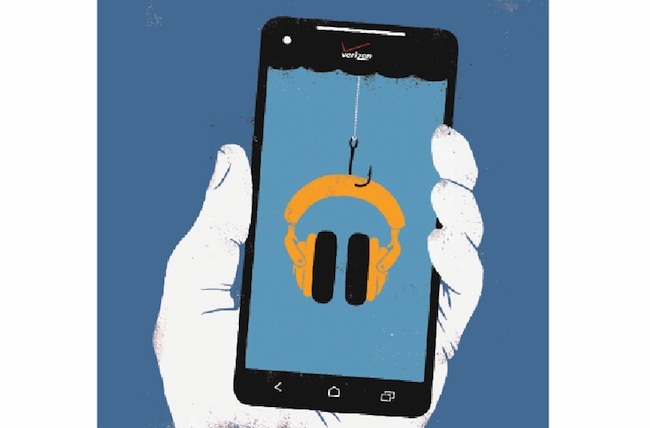In the race to win mainstream adoption, Google has been exploring a bundling distribution deal for its All Access subscription music streaming service with Verizon’s wireless business, according to executives knowledgeable with the discussions. The No. 1 U.S. wireless company may have had its hand forced, given the advanced discussions between rival AT&T and Beats Music’s digital music service and its absorption of Muve Music through its acquisition of Leap Wireless/Cricket.

A deal with Google Play Music All Access would allow Verizon to offer an on-demand music service to its 100 million wireless subscribers. Google would gain a powerful distribution partner that could
 PURCHASE THIS WEEK’S ISSUE OF BILLBOARD HERE |
A distribution agreement has the potential to benefit both parties. Verizon could use Google’s music service as a way to attract new customers and reduce defections, similar to the way Muve, an on-demand music service, helped Leap Wireless grow its Cricket cellphone business.
AT&T Buys Leap Wireless, Owner of Muve Music, For $1.19 Billion
“Carriers are looking to find ways to reduce churn by offering a sticky service, while also increasing their average revenue per user,” says an executive who declined to be named because the discussions are confidential. “Muve has demonstrated that music can do that.”
At the same time, Google could leverage Verizon’s existing billing relationship with its customers, making the payment process as frictionless as possible. The Silicon Valley tech giant could also use Verizon’s physical retail sales force to help sell All Access as customers sign up for new wireless service.
The talks, it should be noted, are still in the early stages and could fall apart at anytime. Google and Verizon declined to comment.
Music services have been keen to hook up with carriers, which they see as the key to breaking the sector out of its early-adopter niche and into more mainstream audiences. Google’s All Access has between 250,000 and 500,000 subscribers, though that estimate includes customers who are still in the free trial period.
Billboard revealed last week that AT&T is considering keeping both the Muve brand, which has 1.7 million subscribers, and inking a premium music service deal with Beats Music once the service launches later this year.
Bundling deals are more common in Europe, where Spotify has enjoyed a bundling deal with Telia, Sweden’s largest mobile operator, since 2009. Meanwhile, Deezer has partnered with France Telecom’s Orange service since 2010. Some speculate that streaming music on mobile services took hold in Europe early because the market gravitated to smartphones sooner than in the United States.
For music services, a key-negotiating hurdle in any carrier distribution deal is the cost of free trial periods. While free trials lasting a month or more are seen as an effective means of garnering paying subscribers, music services still must pay royalties for every song played during the free period.
“The question is, Who’s going to carry the cost?” says an executive familiar with the talks. “Verizon doesn’t want to pick up the full tab. Google is arguing that its service will help Verizon attract new customers. Meanwhile, rights holders are eager to get the deal done so the market can grow.”
As a result, the three main stakeholders—carriers, music services and rights holders—have been discussing ways to craft a solution that could spread the cost and the risk of any distribution deals among all parties involved. One proposal is for carriers to guarantee a minimum number of paying subscribers or throw their marketing muscle behind the music service in lieu of paying hard dollars. Rights holders could also agree to a lower royalty rate during the trial period, or advertising during the free trial could help offset costs.
